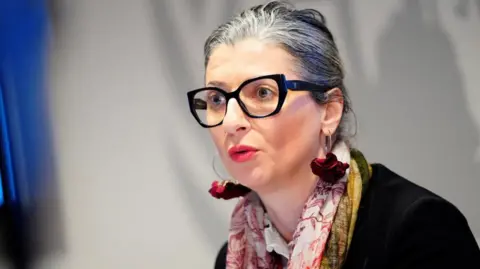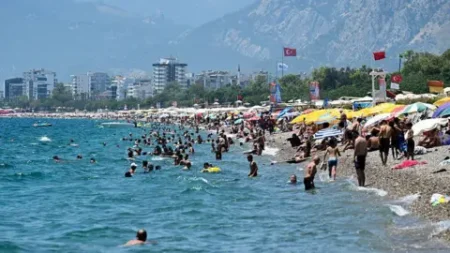The recent imposition of sanctions by the United States on Francesca Albanese, a UN Human Rights Council special rapporteur, has sparked widespread controversy and debate. Albanese has been a vocal critic of Israel’s military operations in Gaza, and the sanctions come amid heightened tensions surrounding the ongoing conflict in the region.
Secretary of State Marco Rubio announced the sanctions, linking them directly to Albanese’s support for the International Criminal Court (ICC). The ICC has faced scrutiny and has already had several of its judges sanctioned by the United States for pursuing cases that could involve American or Israeli nationals. Rubio characterized Albanese’s actions as unfit for her role in the UN, suggesting that her engagement with the ICC undermined the U.S. stance on Israel.
The sanctions are extensive and are expected to severely limit Albanese’s ability to travel to the United States and access any financial resources within the country. This represents a significant escalation in confrontations between the U.S. and the ICC, reflecting a broader strategy by the Trump administration to counter international legal actions perceived as unfavorable to American or allied interests.
This move against Albanese follows the ICC’s issuance of arrest warrants for Israeli Prime Minister Benjamin Netanyahu and his former Defence Minister Yoav Gallant, citing alleged war crimes associated with the ongoing conflict in Gaza. Both Israeli officials have publicly condemned these accusations as baseless. Rubio’s remarks, in conjunction with the sanctions, further emphasize allegations against Albanese, accusing her of promoting antisemitism and supporting terrorism, which fueled the brewing backlash from various advocates for Palestinian rights.
The reaction to Albanese’s sanctioning has been one of concern, particularly from those advocating for accountability regarding civilian casualties in Gaza. As a special rapporteur, Albanese has consistently advocated for the rights of Palestinians under occupation, often highlighting the inaction from Western governments regarding human rights violations. Her robust criticisms have garnered substantial support from activists who believe that accusations of antisemitism have often been weaponized to suppress legitimate discourse on Israel’s policies.
Albanese has previously been scrutinized for controversial remarks, including a statement referencing the “Jewish lobby” and its influence over U.S. foreign policy in favor of Israel. Although she later expressed regret for that statement, she has firmly denied allegations of antisemitism. Critics and supporters alike have debated the implications of her comments, with her defenders suggesting that the focus on her language serves to divert attention from the pressing humanitarian crisis in Gaza.
Agnes Callamard, the head of Amnesty International and a former UN rapporteur, expressed her disappointment over the sanctions, underscoring the need for global actors to resist and mitigate the impact of such measures on Albanese’s work. She emphasized that dialogues should be underpinned by respect for international law rather than punitive actions against advocates for justice.
Interestingly, Rubio accused Albanese of engaging in economic warfare against U.S. interests by allegedly directing “threatening letters” to American companies, urging them to cease business with Israel due to potential complicity in war crimes. This rhetoric reflects a growing divide in perceptions of global accountability and sovereign interests, as her calls for corporate withdrawal from Israel echo calls for broader ethical business practices.
As the conflict escalates, highlighted by the staggering casualties reported in Gaza since October 7, 2023, the ripple effects of these sanctions and the U.S. support for Israel continue to evoke critical conversations regarding international relations and the rules of engagement in humanitarian crises. The Israeli military’s operations have been punctuated by accusations of widespread damage, with significant portions of Gaza’s infrastructure devastated, leading to catastrophic humanitarian conditions.
In conclusion, the sanctions against Francesca Albanese represent a focal point in the ongoing clash between international legal frameworks and national interests, particularly in relation to U.S.-Israel relations. The unfolding situation not only encapsulates the strife spawned by the Palestinian-Israeli conflict but also showcases the broader implications for international diplomacy, human rights advocacy, and the role of global institutions like the UN and ICC in challenging violations of international law.











